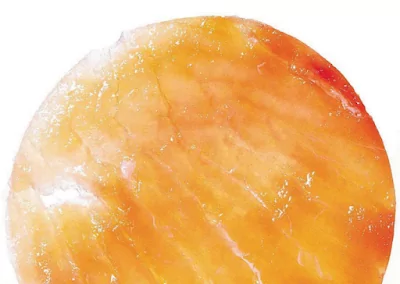At the University of Minnesota two years ago, Dr Shalamar Sibley, was examining how kilojoule reduction might affect hormone pathways. On a hunch, she decided to test one more variable: vitamin D.
“Researchers have been tracking the relationship between low vitamin D and obesity,” says Dr SibLey. “So I wondered if people’s baseline vitamin D levels would predict their ability to lose weight when cutting kilojoules.”
Her hunch paid off – big time. People with adequate vitamin D levels at the start of the study tended to Lose more weight than those with low levels, even though everyone reduced their kilojoule intake equally. In fact, even a minuscule increase in a key D precursor caused the study participants to incinerate an additional quarter of a kilogram of flab.
Dr Sibley’s study is just the latest indication that vitamin D could be our special ops agent in the war against body fat. “In the past decade, there’s been an explosion of research on vitamin D,” says Dr Anthony Norman, a professor emeritus of biochemistry at the University of California. For example, a study at Laval University in Quebec City found that people who consumed more dietary vitamin D had less belly fat than people who ate less.
What’s the big deal about D? It comes from milk and exposure to sunlight, right? Well, not really. Or at least, not enough of it does. More than a third of American men are deficient in the nutrient – even young, healthy men who Live in sunny states. And many more American men – over 50% – have suboptimal Levels. Despite ample sunshine, the Middle East and Africa register the highest rates of rickets worldwide – this is in large part explained by limited sun exposure, according to the International Osteoporosis Foundation.
“Vitamin D deficiency is one of the most commonly unrecognized medical conditions,” says Dr Michael F. Holick, a professor of medicine at Boston University medical center and author of The Vitamin D Solution. “And that deficiency negatively affects every cell in your body-including your fat cells.”
One reason vitamin D has flown under the research radar for so long is because it’s more than just a vitamin – it’s also a hormone, one that plays a role in a remarkable range of body processes. “In the past 20 years, we’ve found D receptors on up to 40 different tissues, including the heart, pancreas, muscles, immune system cells and brain,” says Norman. He should know, having discovered the vitamin D receptor on intestinal cells back in 1969.
So think of vitamin D as your body’s multitasking marvel: heart disease? Adequate D might be equal to exercise in its ability to ward off this number one killer of men. Blood pressure? D helps keep it down. Diabetes? Yep, studies show that D can combat this, too. Now add the potential to ward off memory loss, certain cancers (including prostate), and even the common cold, and it should come as no surprise that D may also help solve the riddle of your expanding middle. Here’s the rundown on the many benefits of boosting your vitamin D.
You’ll eat less but feel more satisfied.
When you have adequate vitamin D levels, your body releases more leptin, the hormone that conveys a “we’re full, stop eating” message to your brain. Conversely, less D means less leptin and more frequent visits to the line at the Chinese buffet In fact, an Australian study showed that people who ate a breakfast high in D and calcium (a mineral that works hand in hand with D) blunted their appetites for the next 24 hours. Vitamin D deficiency is also linked to insulin resistance, which leads to hunger and overeating, says Dr Liz Applegate, director of sports nutrition at the University of California.
You’ll store less fat.
When you have enough D in your bloodstream, fat cells slow their efforts to make and store fat, says Dr Holick. But when your D is low, levels of parathyroid hormone (PTH) and a second hormone, calcitrol, rise and that’s bad: high levels of these hormones turn your body into a fat miser, encouraging it to hoard fat instead of burning it, says Dr Michael B. Zemel, director of the nutrition institute at the University of Tennessee. In fact, a Norwegian study found that elevated PTII levels increased a man’s risk of becoming overweight by 40%.
You’ll burn more fat – especially belly fat.
Vitamin D can help you lose lard all over, but it’s particularly helpful for the kilograms above your belt. Studies at the University of Minnesota and Laval University found that D triggers weight loss primarily in the belly. One explanation: the nutrient may work with calcium to reduce production of Cortisol, a stress hormone that causes you to store belly fat, says Zemel.
You’ll lose weight – and help your heart.
One of Zemel’s studies found that a diet high in dairy (which means plenty of calcium and vitamin D) helped people lose 70% more weight than a diet with the same number of kilojoules but without high levels of those nutrients. What’s more, a German study showed that high levels of vitamin D actually increased the benefits of weight loss, improving cardiovascular risk markers like triglycerides.

